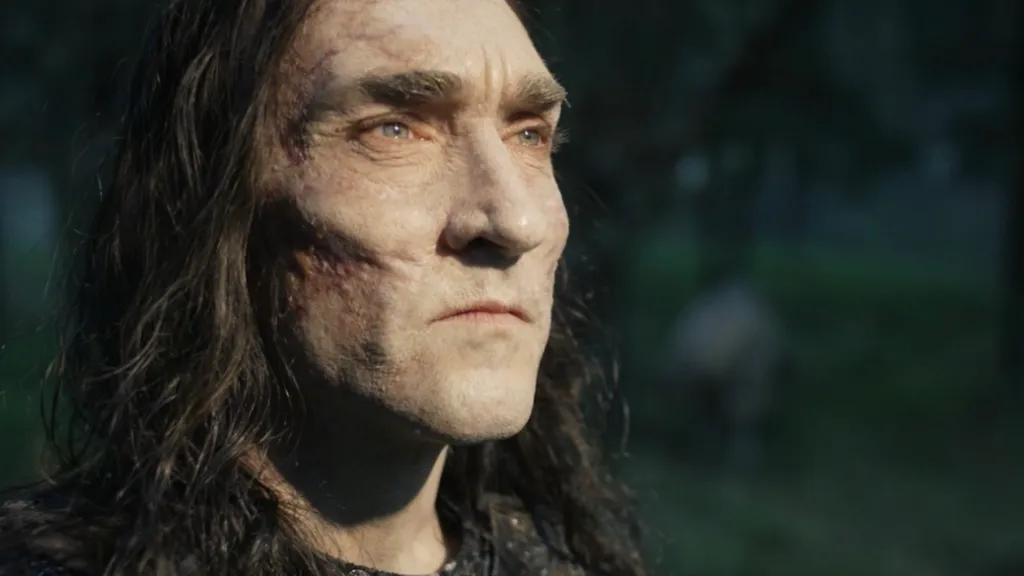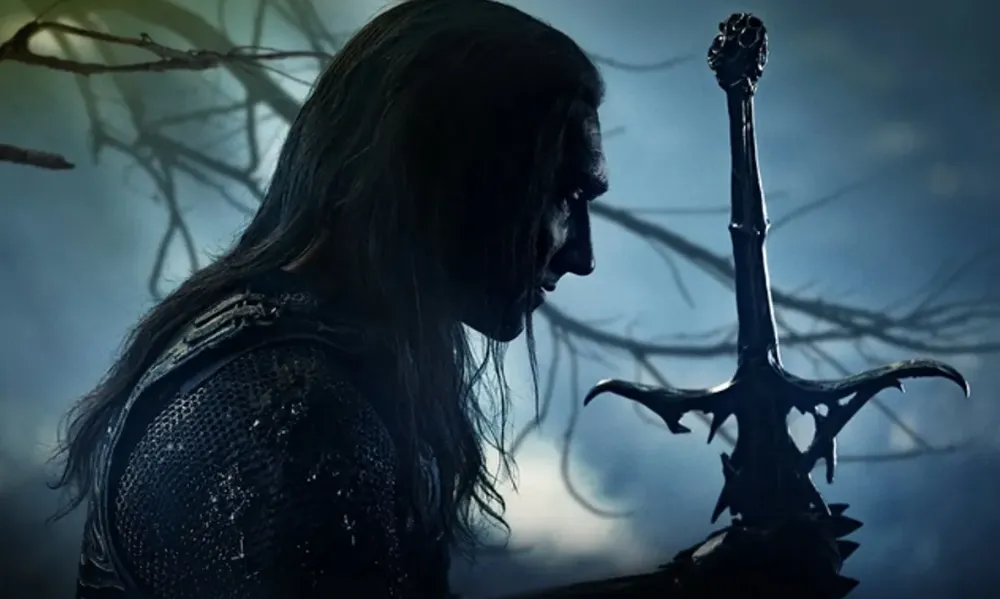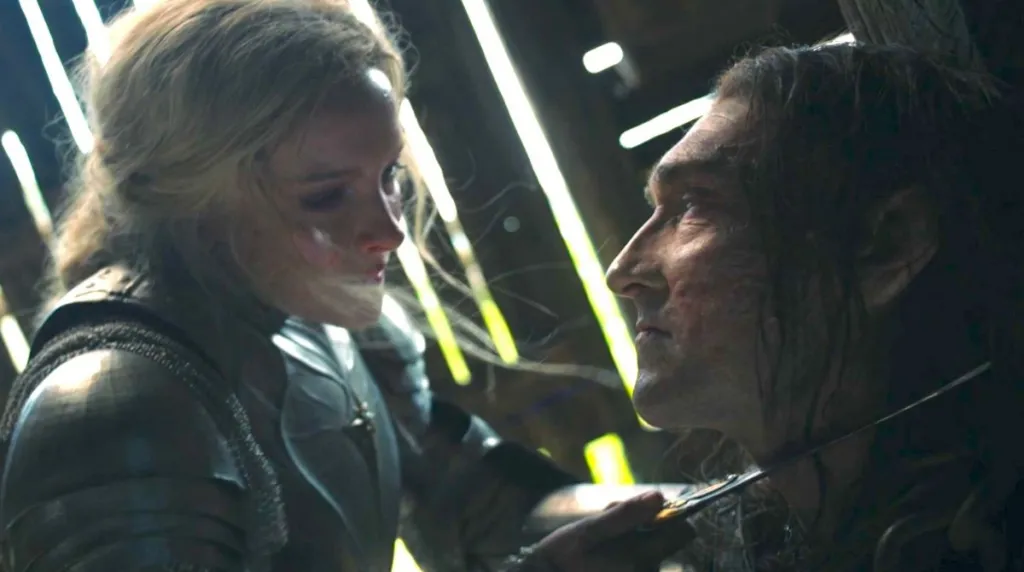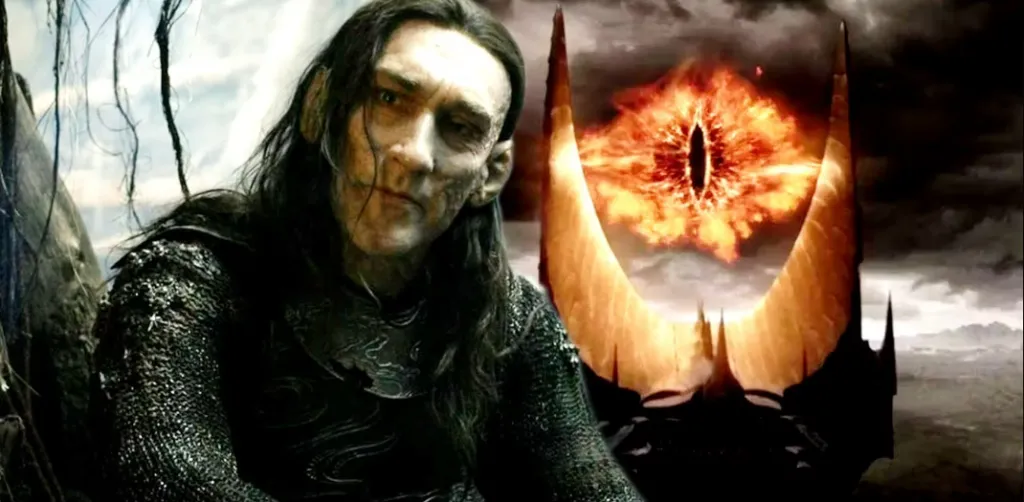

INTRODUCTION
In the TV series "The Lord of the Rings: The Rings of Power,” a new and rather enigmatic and multi-layered character is revealed to be at the center of the action in Middle-earth. Joseph Mawle plays Adar who is first seen as the leader of the orcs in the Southlands but the audience gets to see the true colors of the character in the first season. Unlike most antagonists, this character cannot be easily depicted as a pure evil, and therefore is a complex character that complicates the black and white division of good and evil in Tolkien’s universe. The name ‘Adar’ means ‘father’ in elvish, which is ironic given the fact that he somewhat plays the role of a father figure to the orcs under his command, unlike the traditional savage orc commander. In the course of the series, it is revealed that Adar is not just an orc chief but a former elf, one of the first to be tormented and perverted by Morgoth in the First Age. This revelation complicates his character in terms of morality and makes him a victim and a perpetrator of evil at the same time. So, Adar also has more functions in the series than just a military commander to such characters as Galadriel and being an essential part of Mordor formation. He adds a dimension to the story and explains the link between the First Age and the events that led to the creation of the Rings of Power.
The Origins of a Corrupted Elf
From Light to Darkness
The character’s origin is tied to the sad narrative of Middle-earth, the action of Morgoth in the First Age. Originally an elf, he was one of the first to be captured and experimented on by the Dark Lord, which turned him into the ‘Uruk’ he calls himself, which makes the character even more tragic because he was turned into a villain by circumstances. The suffering he experienced during his corruption has made him the way he is and motivated him to see the orcs, or ‘Uruks’ as he refers to them, as his children who should have a home in Middle-earth.

A New Perspective on Orcs
This character is quite different from the usual depiction of orcs in the Tolkien’s Middle Earth. In this respect, through his leadership and care for the orcs under his command, he offers a more complex vision of these creatures usually portrayed as irredeemably evil. He calls them his children and takes care of them, which is rather unusual for orcs in the Middle-earth stories. This paternal relationship adds another layer to the character and the orcs themselves, making the audience think about the fact that even these creatures are villains, they have dreams and fears and the need to belong.
Leadership and Motivations
A Father to the Orcs
The leadership style of the character puts him in a category of his own when it comes to Middle-earth antagonists. Unlike most evil forces that depict a tyranny kind of leadership, he even cares for his followers. He cries over dead orcs, bandages them up, and goes to war with them. This kind of leadership is quite different from the kind of authoritarian leadership that is exhibited by antagonists such as Sauron. His name, which is translated as ‘father’ in Elvish, is not only a name but also a position that he has assumed among the orcs. He is not only their commander during the fight but also a guide who sets goals and meaning to their lives.

The Quest for a Homeland
The main plot of the series during the first season is to establish a home for the orcs. This objective is the reason behind his actions in Southlands which ends up in the dramatic change of the region to become Mordor. However, one must understand that it is not annihilation in its purest sense that he aims for. However, he views this change as a positive process to make his “children” live without being discriminated against. This motivation makes his character more layered, as he wants to protect his people, not for the usual reasons of evil desire to possess Middle-earth’s power seen in other antagonists.

Conflict and Relationships
Confrontation with Galadriel
One of the most important interactions of this character is when he confronts Galadriel. This meeting not only provides additional information about his background and his reasons for acting in such a way but also helps to question the views of the main character – Galadriel. In the course of their conversation, he makes a strong argument that orcs should have the same rights of any other sentient race in Middle-earth. He continues to assert that they are not any less the offspring of the god of their world. This philosophical position also makes his character more interesting and challenges both Galadriel and the viewers of the film about the nature of good and evil in Middle-earth.
Opposition to Sauron
Notably, the character locates himself in an anti-Sauron stance. He says he murdered Sauron (or tried to) for the dark lord’s torturous experiments on the orcs. This revelation makes him even more ambiguous as a character – while his motives are quite similar to those of the protagonists, his actions are in contrast to the heroes’ values. His animosity towards Sauron makes him quite different from most villains of Middle-earth who are usually minions of the evil lords making him quite an outlier in the overall narrative.

The Creation of Mordor
A Pivotal Role
The character plays a crucial role in one of the most significant events of the first season: the creation of Mordor. The plan for the Southlands that he had in order to make it a place for the orcs is further brought to a climax by the eruption of Mount Doom. This act not only establishes his role as one of the central figures in the series but also links his story arc to the overarching narrative of Middle-earth. Mordor is created to suit him in several ways, and these are as follows. It gives the orcs a home, creates a political influence through which he can act, and is a perverted form of making something, so he can make his mark on the world.
Unintended Consequences
As much as the character’s goal is to provide the orcs with a home, the latter’s actions contribute to Sauron’s rise to power. The change of the Southlands to Mordor is the creation of the conditions that Sauron needs to make the Rings of Power. This is a bit of irony in the actions of the character as he tries to save his ‘children’ only to have them end up as slaves to a worse master.
CONCLUSION
The character of Adar in "The Lord of the Rings: From the series “The Lord of the Rings” and “The Hobbit”, one of the most interesting and multifaceted antagonists in Middle-earth can be considered. His being an ex-elf, a father figure to the orcs, and an enemy of Sauron make him a rather complex character, which cannot be easily placed into any category. By his deeds and aspirations, the series offers a more complex picture of the orcs and the concept of evil in Tolkien’s universe. The character’s part in Mordor construction and his dialogues with the Galadriel enrich the plot and provoke the important questions concerning the nature of evil, repentance, and the right on life. It will be fascinating to observe how this character will develop in the future series especially with the coming of Sauron. Regardless of whether Adar will be redeemed, becomes an even worse villain, or dies, his role in the series has already enriched the plot of Middle-earth with new shades of darkness.
